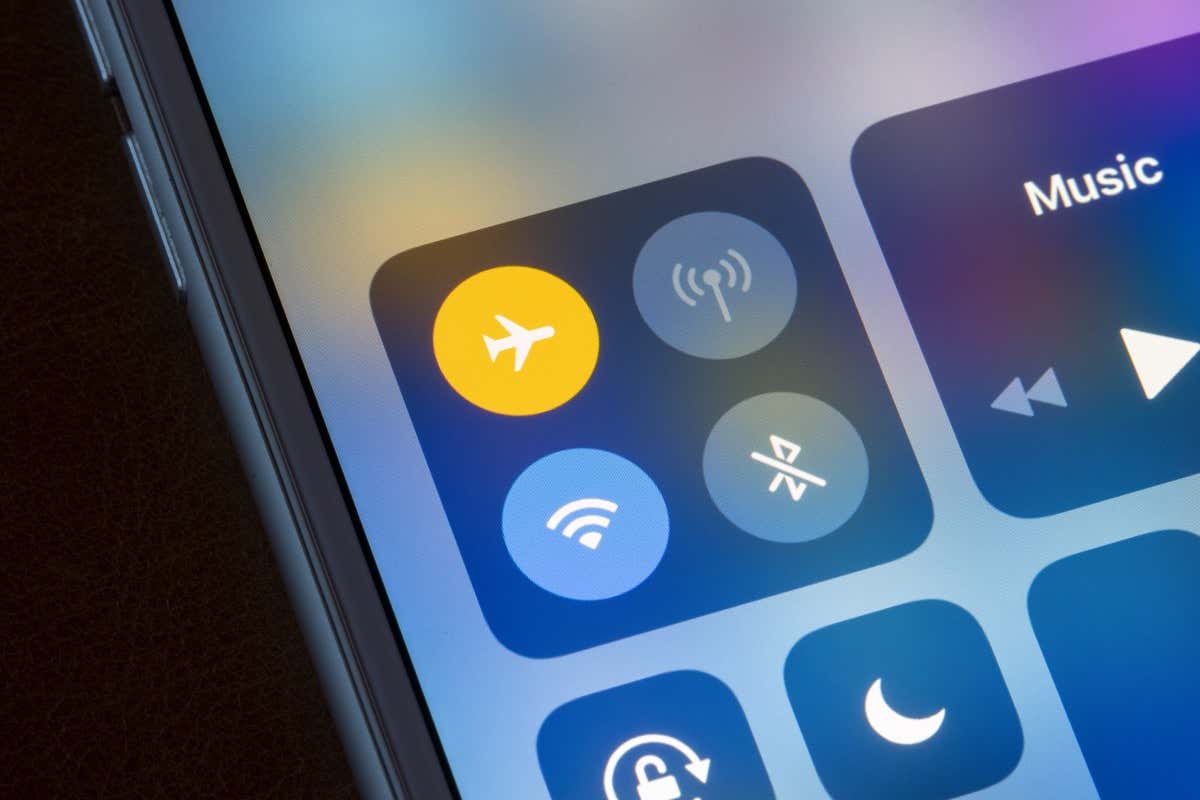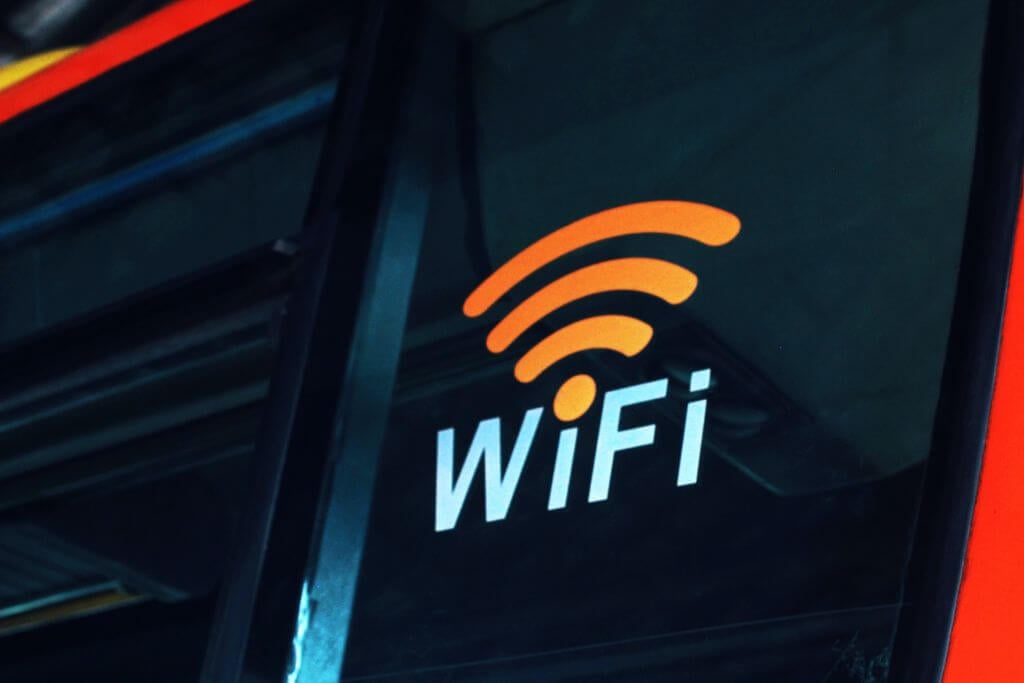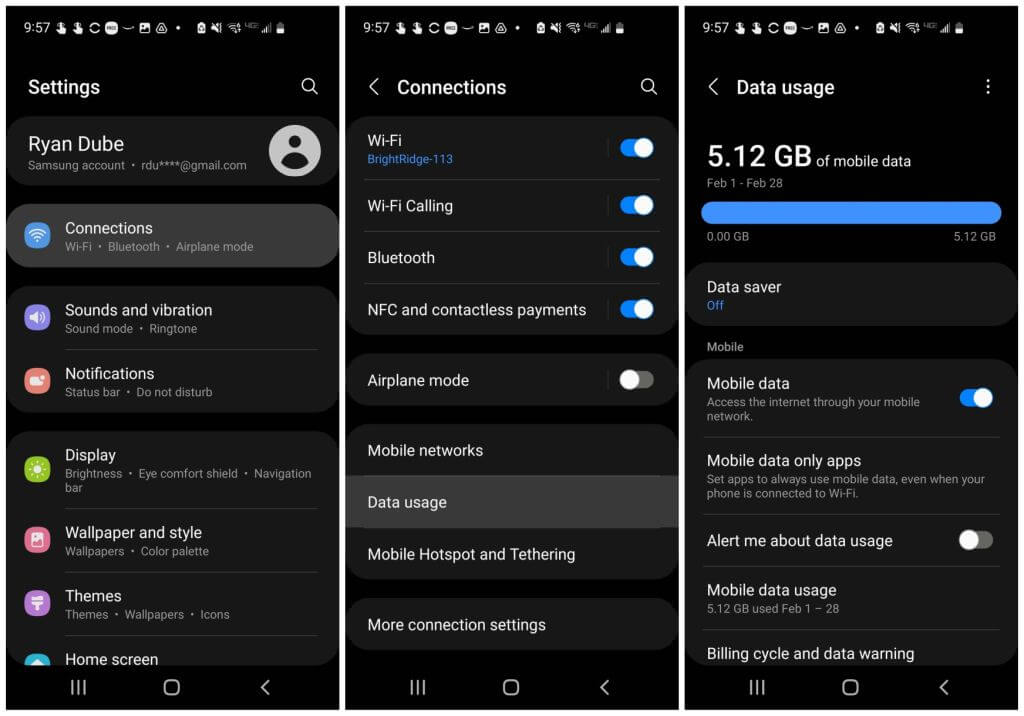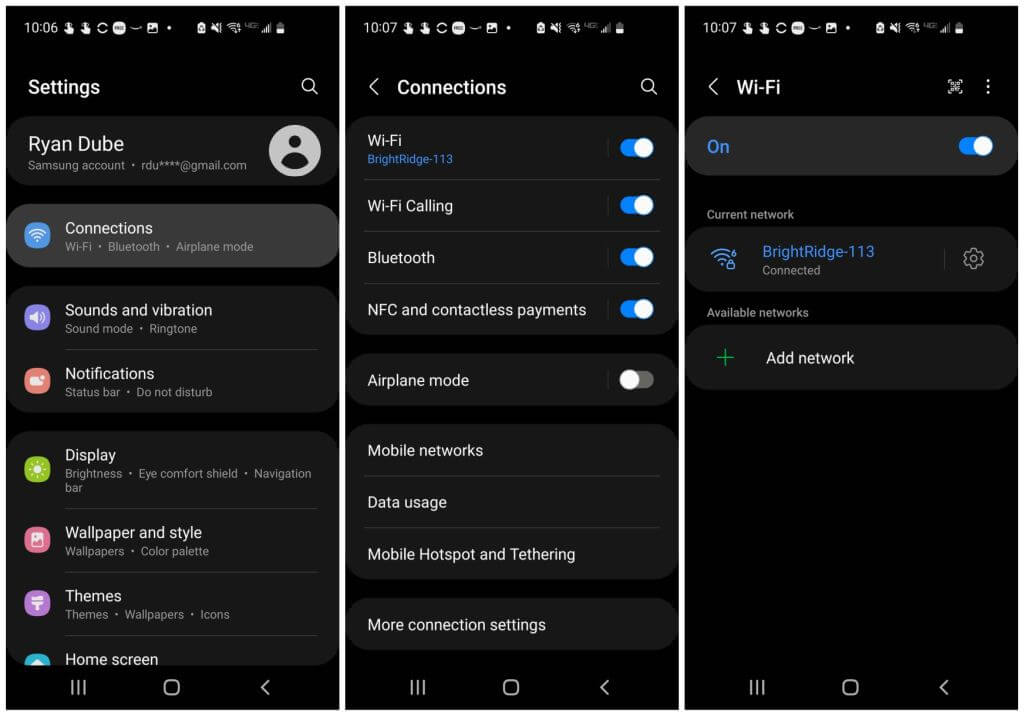In this article, we’ll explore the pros and cons of each to help you know when it’s better to use cellular data or a Wi-Fi connection.
What Is the Difference Between Cellular Data and Wi-Fi?
Generally, it’s usually better to connect to the internet with your smartphone using a Wi-Fi network. This is because the maximum speeds available on a Wi-Fi network are typically many times faster than that of a cellular network.
Wi-Fi Networks: The speed of a Wi-Fi network depends on the Wi-Fi standard that the network router uses. 802.11n offers transfer speeds up to 300 Mbps, 802.11ac up to 7 Gbps, and 802.11ax up to 9.6 Gbps. Cellular Networks: Cellular data over a 4G network is capable of transfer speeds of 100 Mbps on average. 5G offers data speeds up to an impressive 20 Gbps.
You’ll most likely experience a higher quality (more stable) internet connection and faster speeds connecting through a Wi-Fi network. However, if you have a cell phone capable of 5G and your cell phone plan includes 5G service, you could experience better speeds on that particular cellular network. But for most typical users, this scenario is rare. Note: The high-speed capability of 5G networks is why many cellular companies are marketing 5G internet to residential customers.
When Should You Use Wi-Fi?
Wi-Fi is usually the better option if you ever have both options available – Wi-Fi or cellular data. This is because Wi-Fi typically offers:
A more stable internet connection Faster data transfers Wi-Fi is often freely available at many locations You can avoid cellular data usage charges for using a lot of data
Cellular data might be a better option in some cases, but it’s rare.
You have a 5G cellular plan. You have an unlimited or very large monthly data usage plan with a high data limit.
In this case, you might experience faster internet speeds and service that’s just as stable as Wi-Fi. Just ensure you’re confident you won’t get hit with data charges for a high amount of data used for things like video streaming or gaming.
When Should You Turn Off Cellular Data?
If you keep trying to use the internet, but your mobile phone keeps using your cellular data instead of the Wi-Fi network, you may need to disable cellular data to force the phone to use Wi-Fi.
To do this on an Android, go into Settings, tap Connections, tap Data usage, and disable the toggle to the right of Mobile data.
To do this on Apple iPhone, go to Settings, tap Cellular (or Mobile Data) and disable the toggle to the right of Cellular Data.
When Should You Use Cellular Data?
In some situations, using your cellular connection is the better (or only) choice.
These include:
Wi-Fi signal is unavailable or weak. You’re on the go and don’t have access to a public Wi-Fi network. You need to use the internet for urgent or critical tasks and can’t wait until you find a Wi-Fi hotspot.
Generally, it’s always a good idea to use Wi-Fi whenever possible to conserve cellular data usage.
But Wi-Fi networks are local and limited to locations like your home, coffee shops, or libraries. Cellular networks may be all you can access when traveling in more remote locations so long as cell towers are nearby.
When Should You Turn Off Wi-Fi?
If you’re in a location with Wi-Fi and cellular data available but prefer cellular data, you may need to turn off Wi-Fi on your phone. This is particularly true if you’ve configured your smartphone to connect automatically to that Wi-Fi network. On Android, you can disable Wi-Fi by going to Settings, tap Connections, tap Wi-Fi, and on the Wi-Fi page, disable the toggle at the top of the page. On iPhone, go to Settings, tap Wi-Fi, and on the Wi-Fi page, toggle the switch to Off. By disabling Wi-Fi on your phone, you can guarantee that when you use internet-enabled apps, your phone will access the internet using cellular data.
Choosing Cellular Data or Wi-Fi
Choosing between cellular data or Wi-Fi isn’t always easy, but a simple rule is to go with the option with the lowest cost for the best quality connection. Usually, if Wi-Fi is available, that’ll be the best option. Of course, there’s always the case where you may have an unlimited 5G cellular data plan, which would be fine for you.





